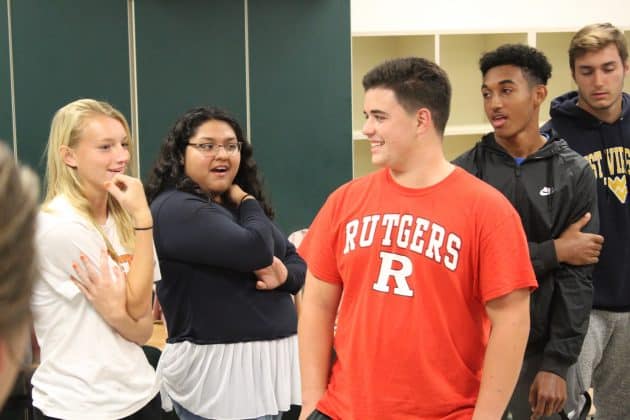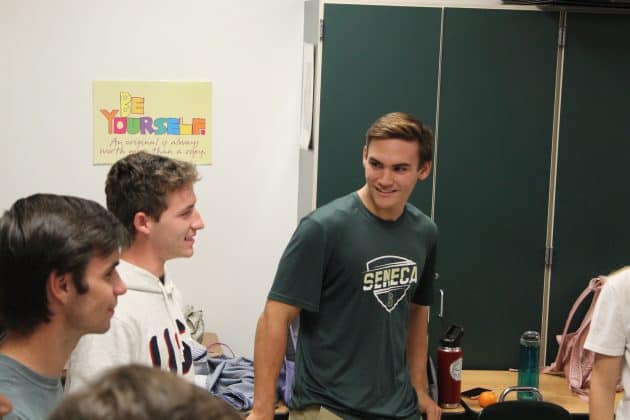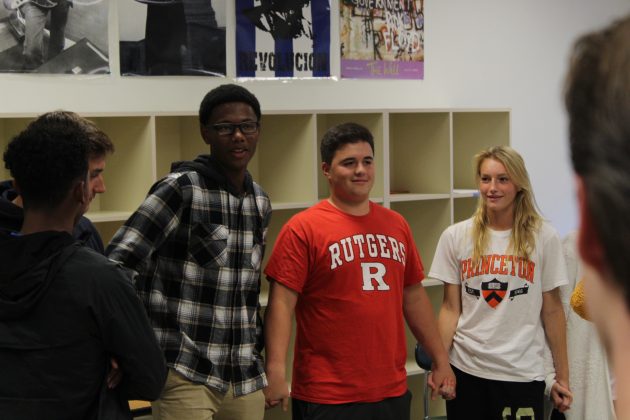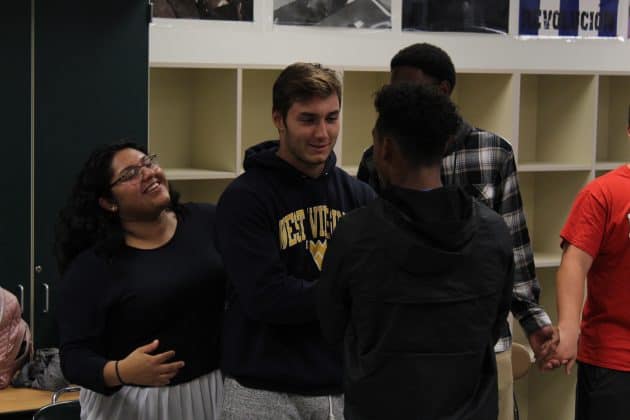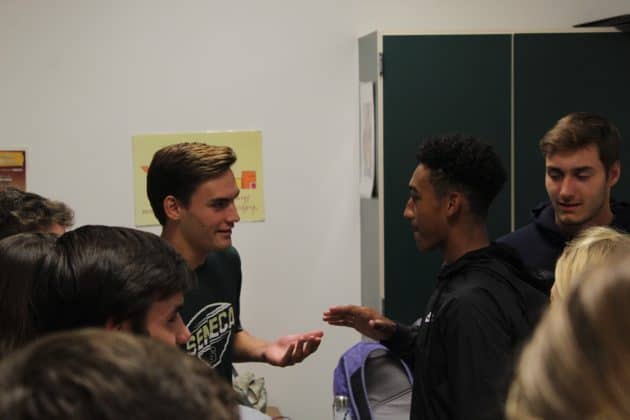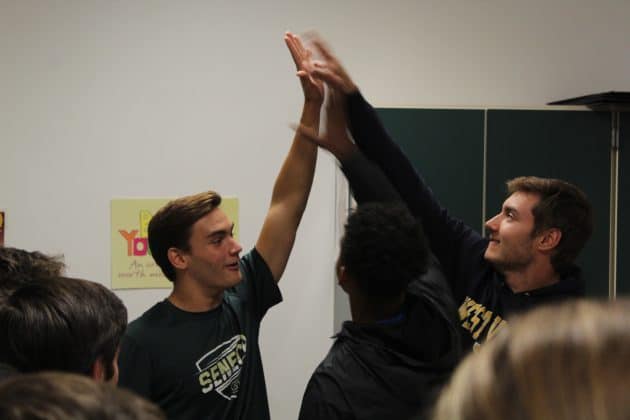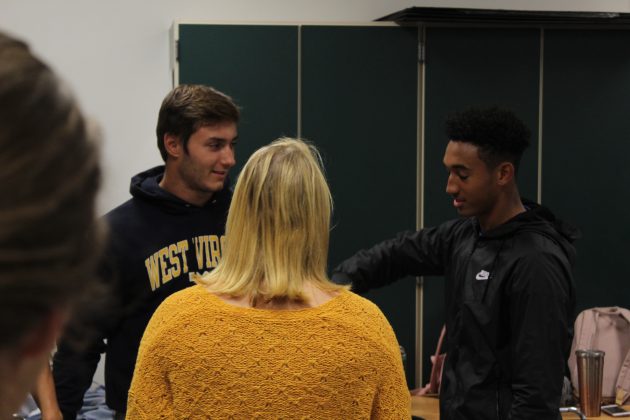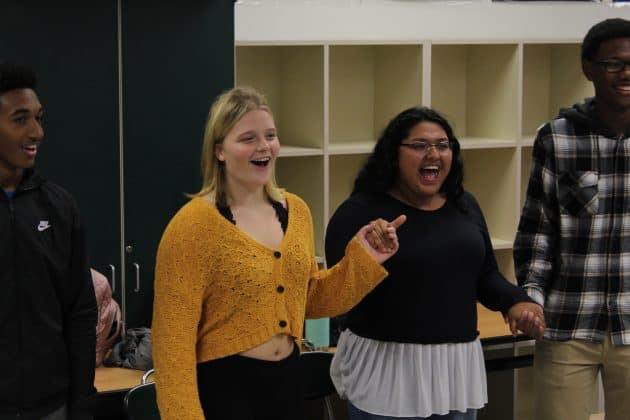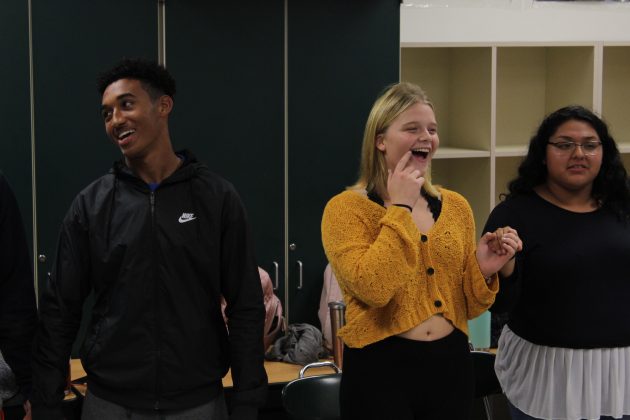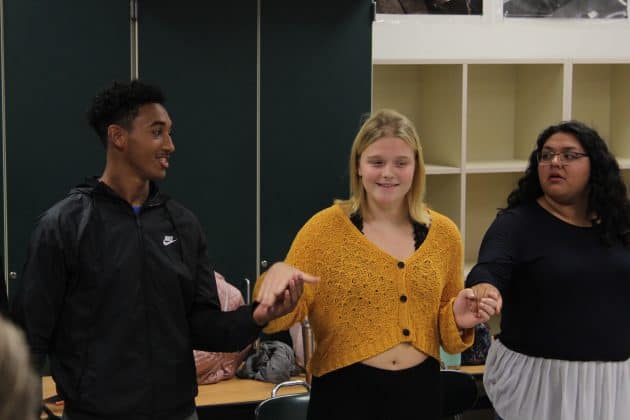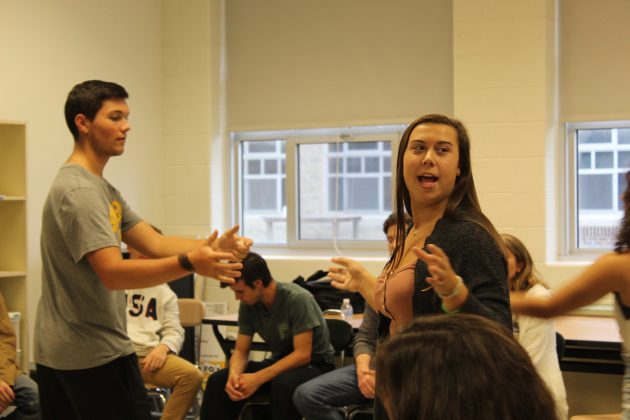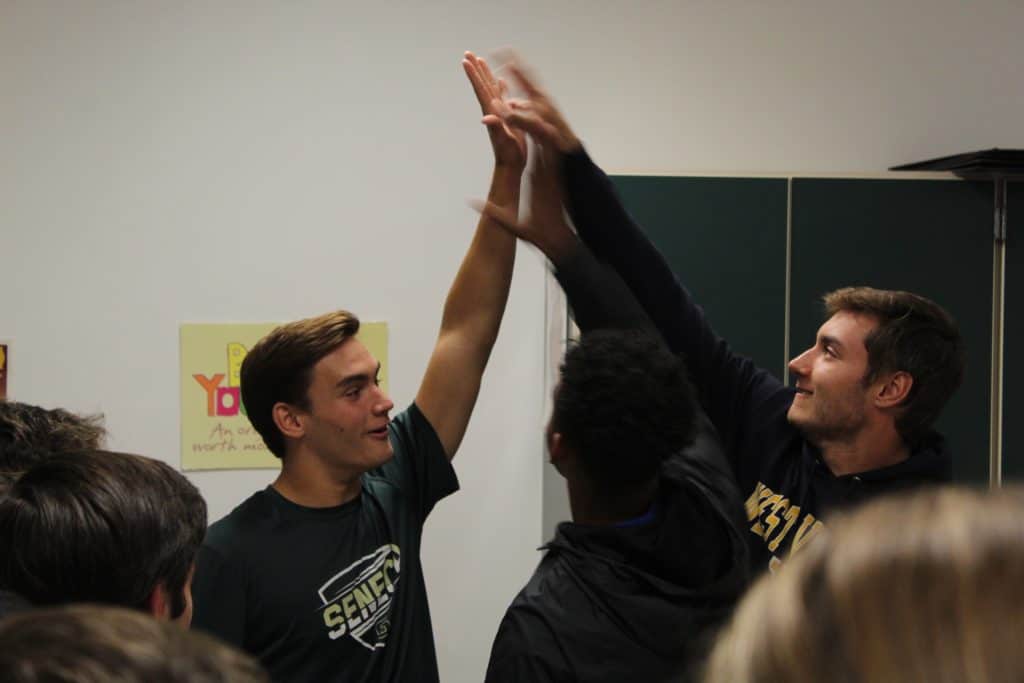
During Respect Week, Seneca High School senior student-athletes facilitate activities to teach their peers and teammates what it means to be an upstander.
For the past seven years, the entire Lenape Regional High School District has been designated as a “No Place for Hate” zone, and students have been training each other to recognize their implicit biases, and how to address them.
“We have students conducting peer training lessons and I’ve been there to observe, and it’s neat to see how these students open up to each other and watch their thought process as they go through it start to change,” said Karen O’Neil, Seneca’s HIB coordinator.
This year the school has roughly 10 seniors who are trained in the program, who are also teaching the younger crowd and their classmates about the upstanders program.
Kylie Mitchell, who plays field hockey and is a student leader in the program, said each session she and the other leaders teach is different because of their peers’ answers or opinions.
The students said in the trainings, other students learn about what happens outside of their bubbles that they wouldn’t normally find out about, which helps them learn about the school’s diverse culture.
O’Neil added the program isn’t restricted to October, which is known as Anti-Bullying Month, or the week of Oct. 7, which is the district’s Respect Week. She said students visit the freshman and sophomore classrooms to train them about biases and how to address them.
“We’ve also been going out to some of the middle schools … so when students get here, they already have an understanding of what we’re about,” she added.
Mitchell added her group addresses cyberbullying and that bullying can often follow a person home or off school property.
“I don’t always see people bullying online, but I have called people out for stuff,” she said. “I’ve walked into a room and someone said something and I told them it wasn’t a nice word. It was just a poor word choice, and they never said it ever again.”
Stephanie Henske, who plays volleyball, said they drill it into students’ minds to think before they speak so what they say won’t offend or be damaging to another person.
If a student does catch themselves saying something potentially offensive, the students and O’Neil said the Anti-Defamation League has a “Respect-O” rule it teaches all students.
“So if something’s offensive, you say ‘ouch’ and the other person apologizes and says ‘oops I’m sorry’ and you forget it,” Mitchell said. “It doesn’t become a big thing.”
The students and O’Neil said with tensions raising during a game, they make sure to offer a “compliment sandwich” where they compliment their teammate, say something they should work on and close it out with a compliment.
Henske said she also adds constructive criticism to her teammates so they do not get defeated over being able to make a play.
“I play basketball and it’s not a nice sport and I have had some very derogatory things said to me, but you have to focus on what you can control,” said Nathan Roseboro. “You have to make sure you and your teammates are supporting one another.”
The students all agreed since being trained by the ADL and former student leaders, they’ve learned to speak up more when they see something occurring and to be more willing to hear about differing opinions.
They also added that when teaching their peers about the program, there are various activities they love to facilitate. One of them is where students are given a clementine and they name something unique about it and then find it in a scattered pile.
The others are when students are “dealt a card” that gives them a disability, sexual orientation or some other identity in an effort to put them in someone’s shoes and promote discussions, and to have students list what they strongly agree and disagree with and discuss the disagreement.
O’Neil hopes for students to be trained at least three times in their high school careers so the school’s culture remains the same, allowing students to civilly express themselves and to stand up for one another.
“We are all family here, we stick up for each other, we have each other’s back, and it’s that sense of community and support,” O’Neil said. “It’s something that when an alumni goes off to college, they recognize even more what they had when they were here at Seneca.“



